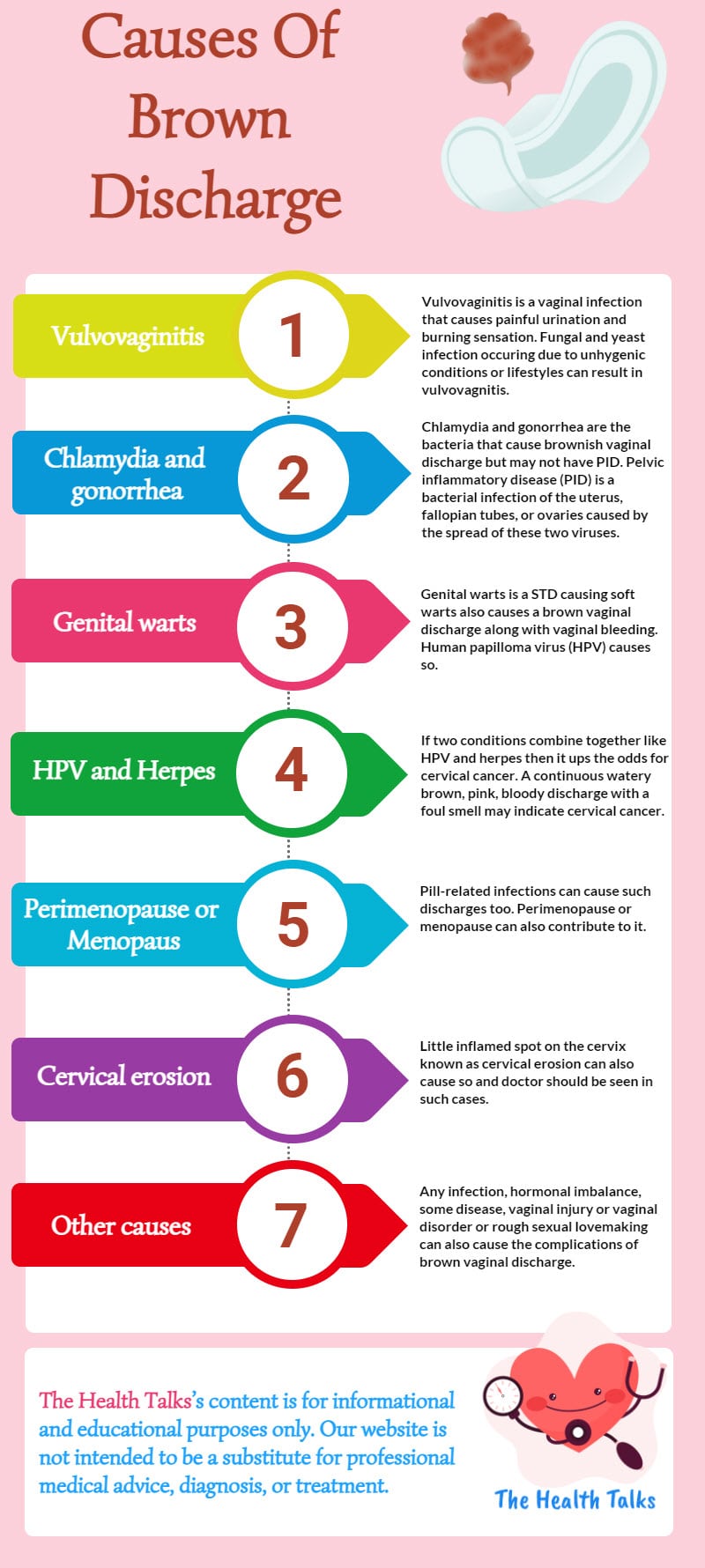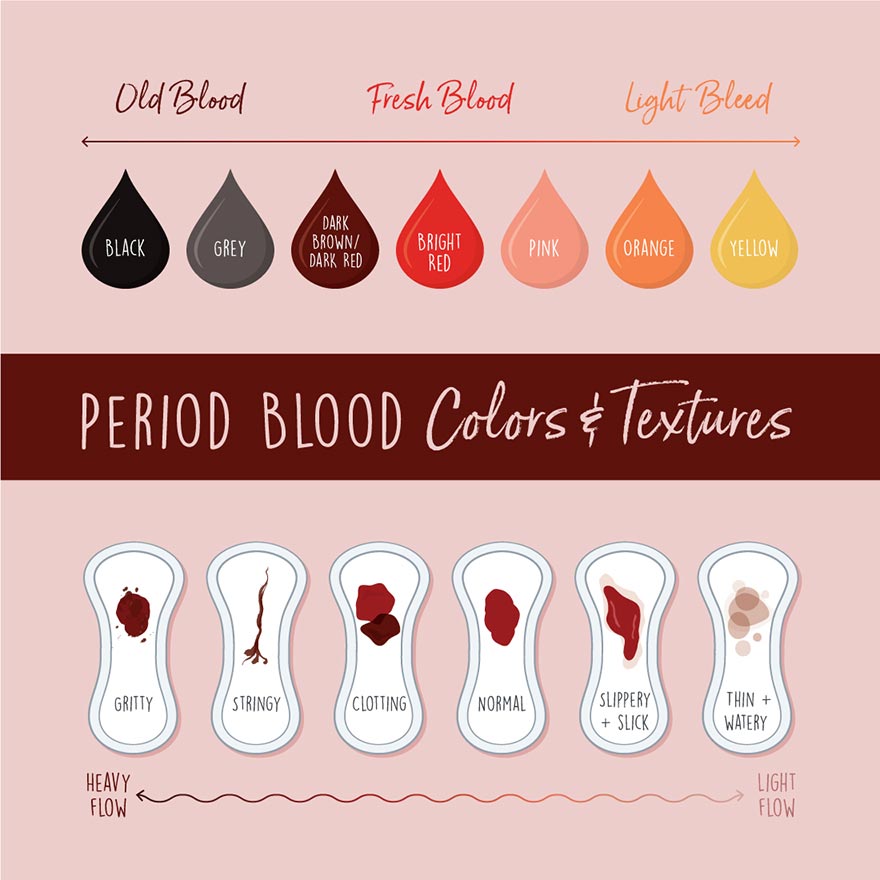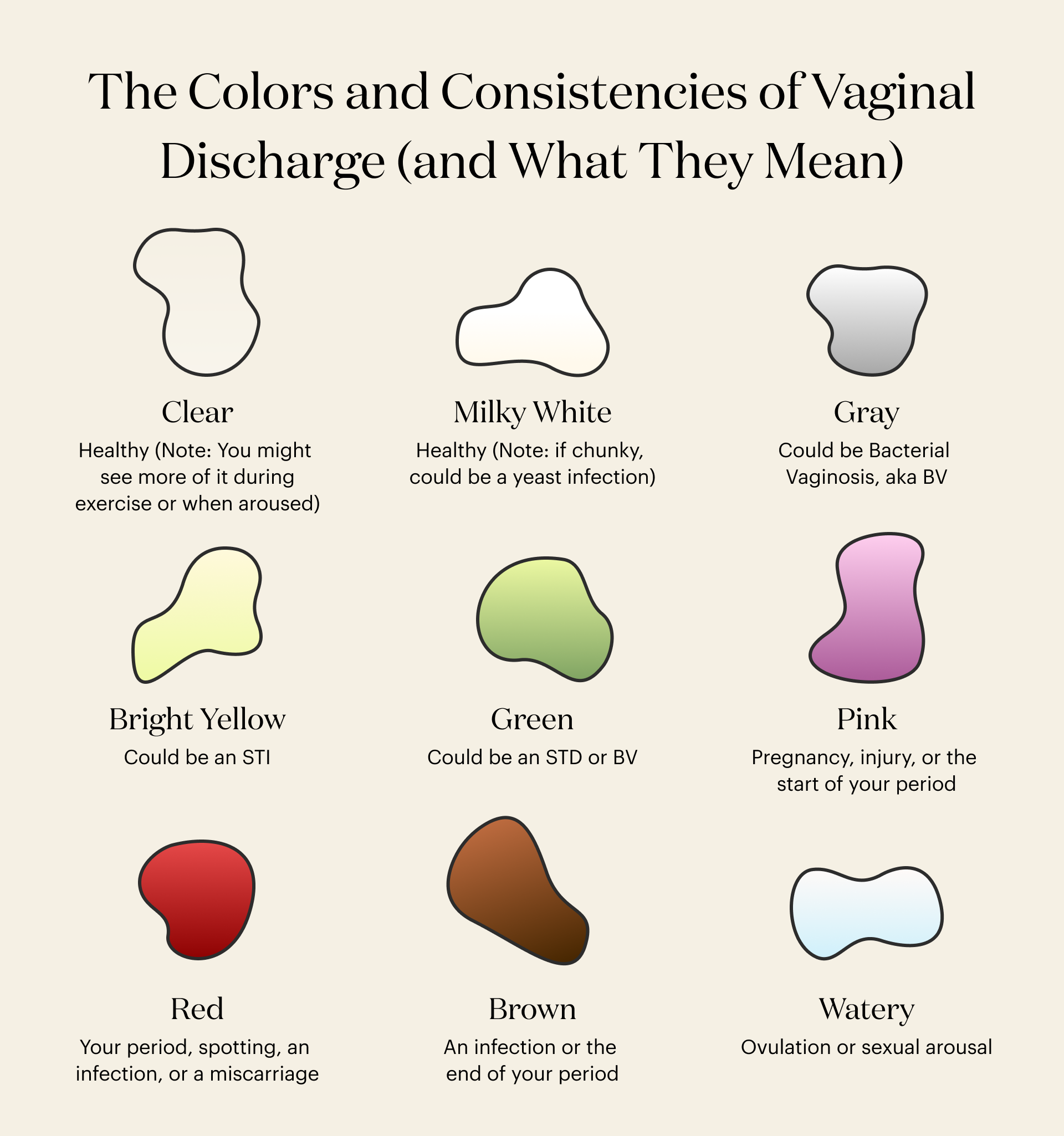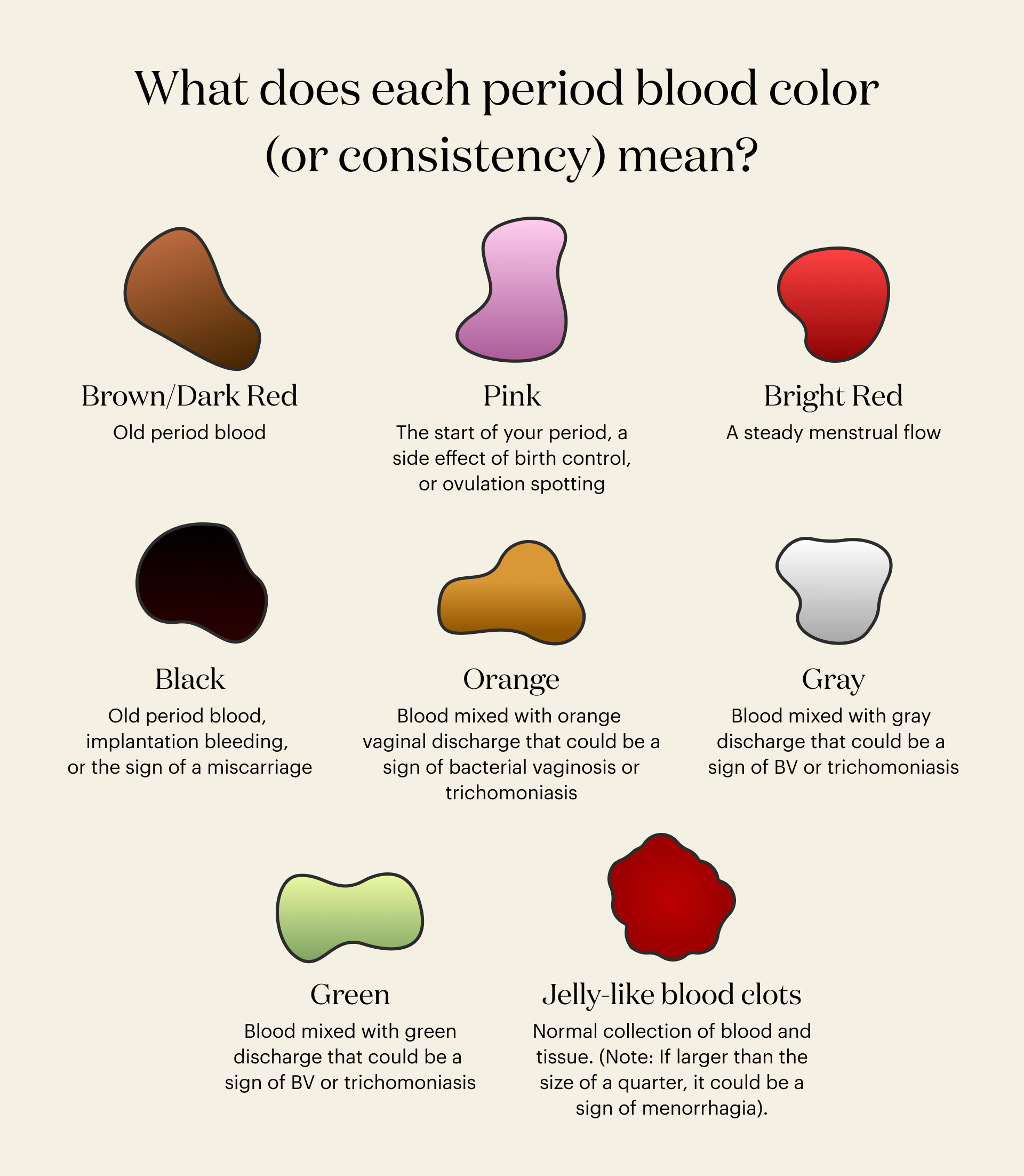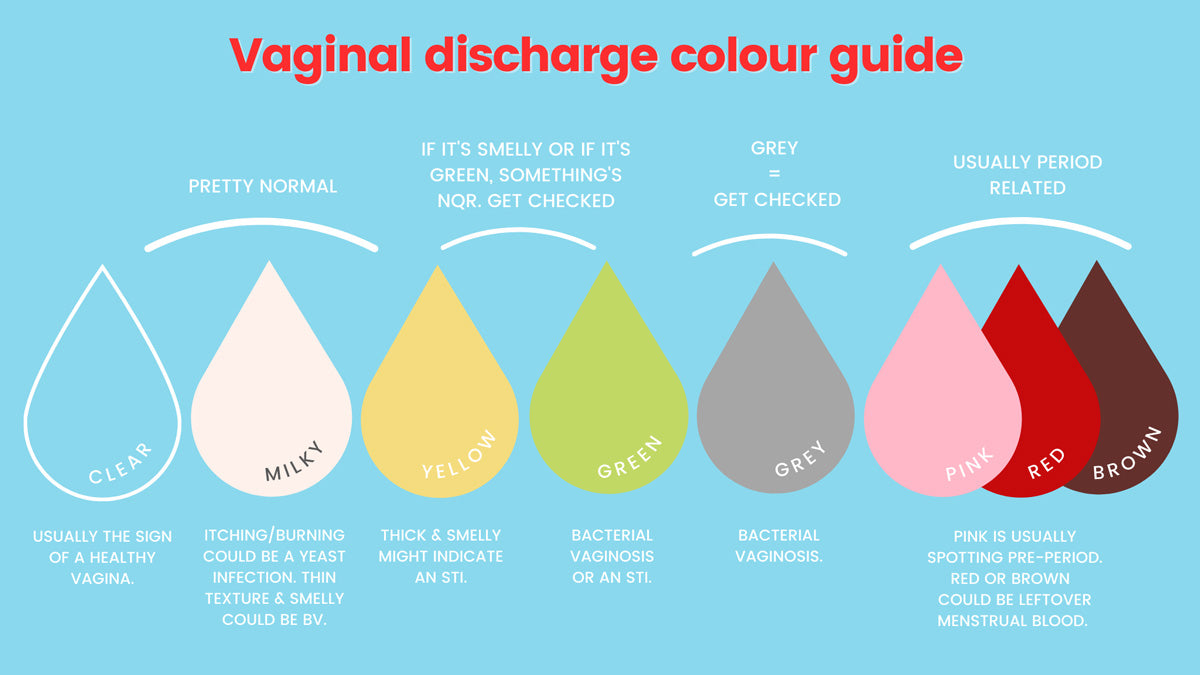Grey Brown Discharge After Period
Grey Brown Discharge After Period - Bloody discharge after your period or in other colours is perfectly normal and is often an indication that your body is functioning as it. In other cases, it may indicate an underlying condition. Reasons for a brown discharge after your period could include lingering menstrual blood, ovulation, vaginal penetration, or even. Brown discharge directly before or after a period can be normal. It can show up before or after your. Often, brown discharge is vaginal fluid mixed with old blood that turned brown due to oxidation.
Reasons for a brown discharge after your period could include lingering menstrual blood, ovulation, vaginal penetration, or even. It can show up before or after your. Bloody discharge after your period or in other colours is perfectly normal and is often an indication that your body is functioning as it. In other cases, it may indicate an underlying condition. Often, brown discharge is vaginal fluid mixed with old blood that turned brown due to oxidation. Brown discharge directly before or after a period can be normal.
Bloody discharge after your period or in other colours is perfectly normal and is often an indication that your body is functioning as it. Brown discharge directly before or after a period can be normal. In other cases, it may indicate an underlying condition. It can show up before or after your. Reasons for a brown discharge after your period could include lingering menstrual blood, ovulation, vaginal penetration, or even. Often, brown discharge is vaginal fluid mixed with old blood that turned brown due to oxidation.
Vaginal Discharge Color Guide What Is Normal?
Bloody discharge after your period or in other colours is perfectly normal and is often an indication that your body is functioning as it. Often, brown discharge is vaginal fluid mixed with old blood that turned brown due to oxidation. Brown discharge directly before or after a period can be normal. In other cases, it may indicate an underlying condition..
💖 Brown Vaginal Discharge Types, Symptoms, Causes
In other cases, it may indicate an underlying condition. Reasons for a brown discharge after your period could include lingering menstrual blood, ovulation, vaginal penetration, or even. Often, brown discharge is vaginal fluid mixed with old blood that turned brown due to oxidation. Brown discharge directly before or after a period can be normal. It can show up before or.
What Color Discharge You Get When You Are Pregnant Moseng
Reasons for a brown discharge after your period could include lingering menstrual blood, ovulation, vaginal penetration, or even. Brown discharge directly before or after a period can be normal. Bloody discharge after your period or in other colours is perfectly normal and is often an indication that your body is functioning as it. It can show up before or after.
Vaginal Discharge 101 Body Harmony Physical Therapy
Bloody discharge after your period or in other colours is perfectly normal and is often an indication that your body is functioning as it. Reasons for a brown discharge after your period could include lingering menstrual blood, ovulation, vaginal penetration, or even. Often, brown discharge is vaginal fluid mixed with old blood that turned brown due to oxidation. Brown discharge.
Did anyone else experience random spotting/brown discharge when getting
It can show up before or after your. Often, brown discharge is vaginal fluid mixed with old blood that turned brown due to oxidation. In other cases, it may indicate an underlying condition. Brown discharge directly before or after a period can be normal. Reasons for a brown discharge after your period could include lingering menstrual blood, ovulation, vaginal penetration,.
Decoding Your Vaginal Discharge Momotaro Apotheca
Often, brown discharge is vaginal fluid mixed with old blood that turned brown due to oxidation. Brown discharge directly before or after a period can be normal. Bloody discharge after your period or in other colours is perfectly normal and is often an indication that your body is functioning as it. In other cases, it may indicate an underlying condition..
How To Get Rid Of A Discharge Askexcitement5
Bloody discharge after your period or in other colours is perfectly normal and is often an indication that your body is functioning as it. It can show up before or after your. Brown discharge directly before or after a period can be normal. Often, brown discharge is vaginal fluid mixed with old blood that turned brown due to oxidation. Reasons.
Implantation Bleeding Or Ovulation Spotting
Often, brown discharge is vaginal fluid mixed with old blood that turned brown due to oxidation. Bloody discharge after your period or in other colours is perfectly normal and is often an indication that your body is functioning as it. In other cases, it may indicate an underlying condition. Brown discharge directly before or after a period can be normal..
Vaginal Discharge Color Chart
It can show up before or after your. In other cases, it may indicate an underlying condition. Brown discharge directly before or after a period can be normal. Often, brown discharge is vaginal fluid mixed with old blood that turned brown due to oxidation. Bloody discharge after your period or in other colours is perfectly normal and is often an.
Brown Discharge After Period Why it Happens Treatment Options
Bloody discharge after your period or in other colours is perfectly normal and is often an indication that your body is functioning as it. Reasons for a brown discharge after your period could include lingering menstrual blood, ovulation, vaginal penetration, or even. Often, brown discharge is vaginal fluid mixed with old blood that turned brown due to oxidation. It can.
It Can Show Up Before Or After Your.
Often, brown discharge is vaginal fluid mixed with old blood that turned brown due to oxidation. Reasons for a brown discharge after your period could include lingering menstrual blood, ovulation, vaginal penetration, or even. Bloody discharge after your period or in other colours is perfectly normal and is often an indication that your body is functioning as it. In other cases, it may indicate an underlying condition.

